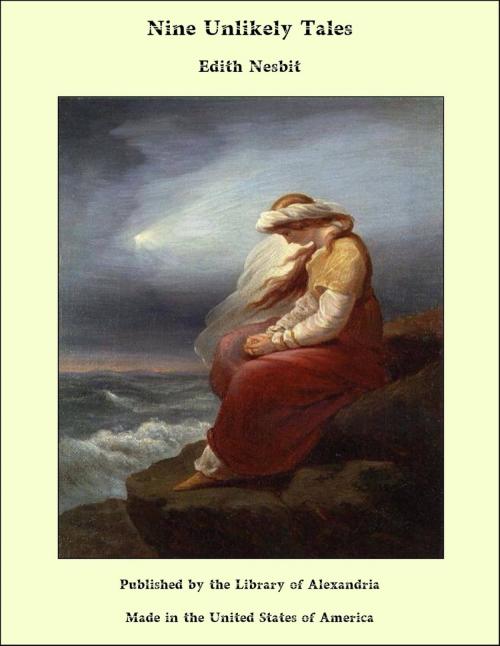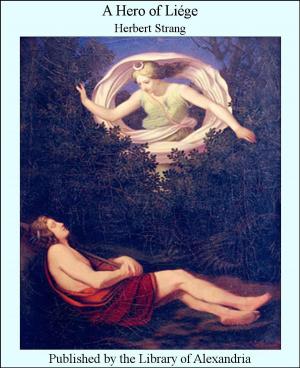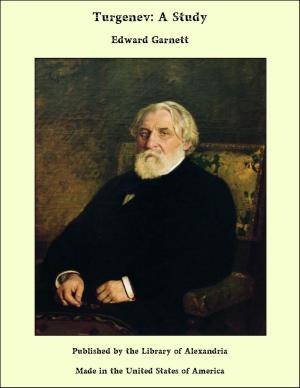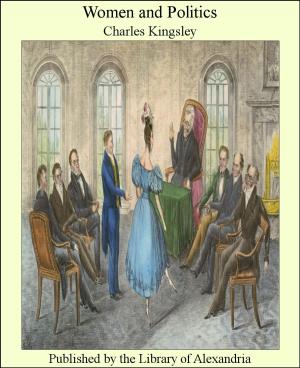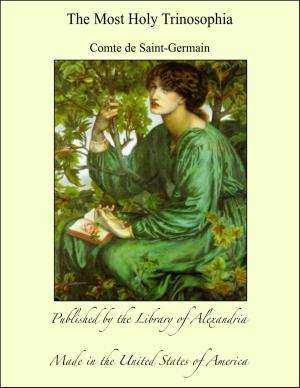| Author: | Edith Nesbit | ISBN: | 9781465604026 |
| Publisher: | Library of Alexandria | Publication: | March 8, 2015 |
| Imprint: | Language: | English |
| Author: | Edith Nesbit |
| ISBN: | 9781465604026 |
| Publisher: | Library of Alexandria |
| Publication: | March 8, 2015 |
| Imprint: | |
| Language: | English |
A great many kings who were not at all respectable would have given their royal ears to be allowed to send their daughters to this school, but Miss Fitzroy Robinson was very firm about references, and the consequence was that all the really high-class kings were only too pleased to be permitted to pay ten thousand pounds a year for their daughters’ education. And so Miss Fitzroy Robinson was able to lay aside a few pounds as a provision for her old age. And all the money she saved was invested in land. Only one monarch refused to send his daughter to Miss Fitzroy Robinson, on the ground that so cheap a school could not be a really select one, and it was found out afterwards that his references were not at all satisfactory. There were only six boarders, and of course the best masters were engaged to teach the royal pupils everything which their parents wished them to learn, and as the girls were never asked to do lessons except when they felt quite inclined, they all said it was the nicest school in the world, and cried at the very thought of being taken away. Thus it happened that the six pupils were quite grown up and were just becoming parlour boarders when events began to occur. Princess Daisy, the daughter of King Fortunatus, the ruling sovereign, was the only little girl in the school. Now it was when she had been at school about a year, that a ring came at the front door-bell, and the maid-servant came to the schoolroom with a visiting card held in the corner of her apron—for her hands were wet because it was washing-day. “A gentleman to see you, Miss,” she said; and Miss Fitzroy Robinson was quite fluttered because she thought it might be a respectable monarch, with a daughter who wanted teaching. But when she looked at the card she left off fluttering, and said, “Dear me!” under her breath, because she was very genteel. If she had been vulgar like some of us she would have said “Bother!” and if she had been more vulgar than, I hope, any of us are, she might have said “Drat the man!” The card was large and shiny and had gold letters on it.
A great many kings who were not at all respectable would have given their royal ears to be allowed to send their daughters to this school, but Miss Fitzroy Robinson was very firm about references, and the consequence was that all the really high-class kings were only too pleased to be permitted to pay ten thousand pounds a year for their daughters’ education. And so Miss Fitzroy Robinson was able to lay aside a few pounds as a provision for her old age. And all the money she saved was invested in land. Only one monarch refused to send his daughter to Miss Fitzroy Robinson, on the ground that so cheap a school could not be a really select one, and it was found out afterwards that his references were not at all satisfactory. There were only six boarders, and of course the best masters were engaged to teach the royal pupils everything which their parents wished them to learn, and as the girls were never asked to do lessons except when they felt quite inclined, they all said it was the nicest school in the world, and cried at the very thought of being taken away. Thus it happened that the six pupils were quite grown up and were just becoming parlour boarders when events began to occur. Princess Daisy, the daughter of King Fortunatus, the ruling sovereign, was the only little girl in the school. Now it was when she had been at school about a year, that a ring came at the front door-bell, and the maid-servant came to the schoolroom with a visiting card held in the corner of her apron—for her hands were wet because it was washing-day. “A gentleman to see you, Miss,” she said; and Miss Fitzroy Robinson was quite fluttered because she thought it might be a respectable monarch, with a daughter who wanted teaching. But when she looked at the card she left off fluttering, and said, “Dear me!” under her breath, because she was very genteel. If she had been vulgar like some of us she would have said “Bother!” and if she had been more vulgar than, I hope, any of us are, she might have said “Drat the man!” The card was large and shiny and had gold letters on it.
